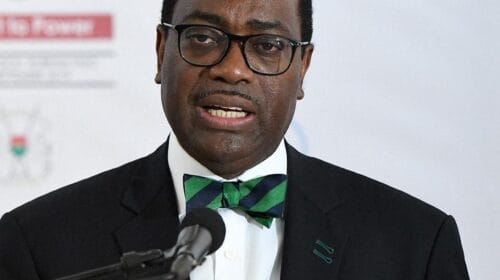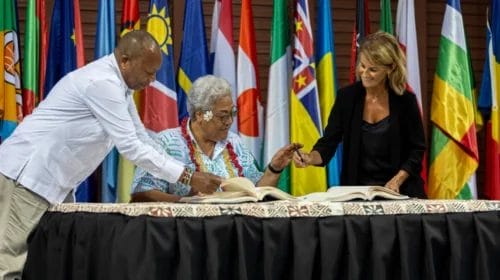On his own Terms: Comrade Robert Mugabe resigns
The lion of Africa, man who baffled the British colonists, Comrade Robert Mugabe resigned on Tuesday, bringing to an end 37 years in power which he began as a hero of the struggle against white rule and ended as the man blamed for reducing his country to despotism and economic misery.
Young people who have no sense of history erupted in celebration after Mr Mugabe’s resignation was announced during a joint session of both houses of the Zimbabwean parliament that had gathered to launch impeachment proceedings on Tuesday afternoon.
“My decision to resign is voluntary on my part and arises from my concern for the welfare of the people of Zimbabwe and my desire for a smooth, non-violent transfer of power,” Mr Mugabe said in a letter read out by Jacob Mudenda, the speaker of parliament.
The move was cautiously welcomed by the West, with the UK and the US calling for a peaceful transition to democracy.
Boris Johnson yesterday hinted that Zimbabwe could rejoin the Commonwealth, from which its membership was suspended in 2002 over a disputed vote, if free and fair elections were held. Mr Johnson said Mr Mugabe had been “a despot who impoverished his country”.
ROBERT MUGABE: FROM TEACHER TO FREEDOM FIGHTER
Robert Gabriel Mugabe was born February 21, 1924, in Katuma, a Jesuit mission station 50 miles west of the Southern Rhodesian capital. His father, Gabriel Matibili, was a carpenter from Nyasaland (later Malawi). His mother, Bona, belonged to the prominent Shona ethnic group.
Did You Know?
Originally known as Southern Rhodesia and later as Zimbabwe Rhodesia, Zimbabwe was renamed upon gaining independence from Britain in 1980. The name comes from a Shona term for the kingdom that controlled the area between 1220 and 1450.
Mugabe graduated from Katuma’s St. Francis Xavier College in 1945. For the next 15 years he taught in Rhodesia and Ghana and pursued further education at Fort Hare University in South Africa. In Ghana he met and married his first wife, Sally Hayfron.
In 1960 Mugabe joined the pro-independence National Democratic Party, becoming its publicity secretary. In 1961 the NDP was banned and reformed as the Zimbabwe African Peoples Union (ZAPU). Two years later Mugabe left ZAPU for the Zimbabwe African National Union (ZANU, later ZANU-PF), his present political home.
ROBERT MUGABE: PRISON AND EXILE
In 1964 ZANU was banned by Rhodesia’s colonial government and Mugabe was imprisoned. A year later, premier Ian Smith issued a Unilateral Declaration of Independence to create the white-ruled state of Rhodesia, short-circuiting Britain’s plans for majority rule and triggering international condemnation.
In prison Mugabe taught English to his fellow prisoners and earned multiple graduate degrees by correspondence from the University of London. Freed in 1974, Mugabe went into exile in Zambia and Mozambique, and in 1977 he gained full control of ZANU’s political and military fronts. He adopted Marxist and Maoist views and received arms and training from Asia and Eastern Europe, but he still maintained good relations with Western donors.
ROBERT MUGABE: THE CREATION OF ZIMBABWE
A 1978 accord between Smith’s government and moderate black leaders paved the way for the election of Bishop Abel Muzorewa as prime minister of the state known as Zimbabwe Rhodesia, but it lacked international recognition because ZANU and ZAPU had not participated. In 1979 the British-brokered Lancaster House Agreement brought the major parties together to agree to majority rule while protecting the rights and property of the white minority. After winning new elections on March 4, 1980, Mugabe worked to convince the new country’s 200,000 whites, including 4,500 commercial farmers, to stay.
In 1982 Mugabe sent his North Korean-trained Fifth Brigade to the ZAPU stronghold of Matabeleland to smash dissent. Over five years, 20,000 Ndebele civilians were killed as part of a campaign of alleged political genocide. In 1987 Mugabe switched tactics, inviting ZAPU to be merged with the ruling ZANU-PF and creating a de facto one-party authoritarian state with himself as the ruling president.
ROBERT MUGABE: THE ROAD TO TYRANNY
During the 1990s Mugabe was reelected twice, became a widower and remarried. In 1998 he sent Zimbabwean troops to intervene in the Democratic Republic of Congo’s civil war—a move many viewed as a grab for the country’s diamonds and valuable minerals.
In 2000 Mugabe organized a referendum on a new Zimbabwean constitution that would expand the powers of the presidency and allow the government to seize white-owned land. Groups opposed to the constitution formed the Movement for Democratic Change (MDC), which successfully campaigned for a “no” vote in the referendum.
That same year, groups of individuals calling themselves “war veterans”—though many were not old enough to have been part of Zimbabwe’s independence struggle—began invading white-owned farms. Violence caused many of Zimbabwe’s whites to flee the country. Zimbabwe’s commercial farming collapsed, triggering years of hyperinflation and food shortages that created a nation of impoverished billionaires.
ROBERT MUGABE: RECENT YEARS
After a 2008 election marred by ZANU-PF-sponsored violence, Mugabe was pressured by his regional allies to form an inclusive government with MDC leader Morgan Tsvangirai as vice president. Even while implementing the accord, Mugabe kept up the pressure, subjecting MDC parliamentarians to arrest, imprisonment and torture.
Mugabe has no obvious anointed successor, making it unclear what direction the country will take after its only post-independence leader dies or finally loses an election.




